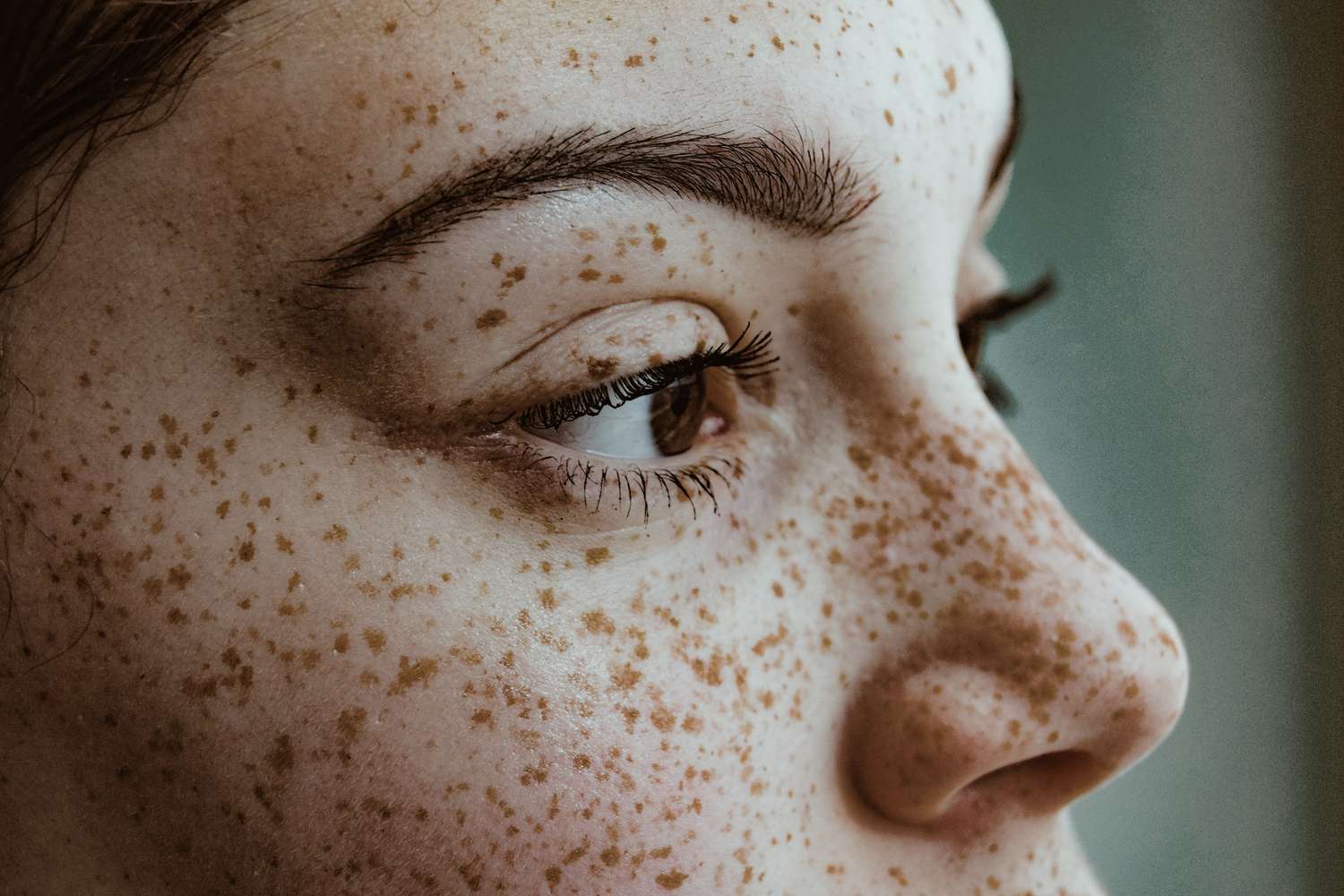If you are losing your eyelashes or eyebrows, don't panic: It's likely a temporary issue and, luckily, one that is treatable. We spoke with celebrity eyebrow expert Sania Vucetaj of Sania's Brow Bar (she's been doing brows for 20 years and has some of Hollywood's biggest stars, from Rihanna to Sarah Jessica Parker, as clients) to learn more about the causes of eyelash and eyebrow loss, and what we can do to prevent and treat it going forward. But ultimately, if you're noticing sparser lashes and brows, you'll want to meet with a board-certified dermatologist to rule out a medical condition or nutrition deficiency first, before you find the right treatment option for you.
Related: Consider This Your Ultimate Guide to Great Eyebrows
 Credit: Getty / Talia Ali / EyeEm
Credit: Getty / Talia Ali / EyeEm
Stress
There are several types of hair loss associated with stress, which causes changes to your metabolism and your body's cortisol levels. Telogen Effluvium (TE) results from this: It happens when stress causes hair follicles (even the ones that form lashes and brows) to stop producing new hair strands. It's typically a side effect from a medication, a hormonal shift, or nutritional deficiencies. Another stress-related cause? If you pull hair from your head, eyelashes, or eyebrows when you're anxious, you could be struggling with Trichotillomania. Whatever the explicit reason or diagnosis, if you think your hair loss is caused by stress, consult with your doctor, who can help you manage you stress levels with healthy coping mechanisms or recommend an over-the-counter topical treatment.
Too Much Hair Removal
When you tweeze or wax your eyebrows, you can pull up a hair by its root, which ultimately causes it to grow back at a slower rate. And hair will only grow back a number of times before your body stops producing it altogether. Don't, however, turn to gimmicky products to promote growth, says Vucetaj, who warns us against using growth serums. There aren't any products on the market guaranteed to regrow the hairs on your head, and the same goes for your brows and lashes. The best remedy? Stop plucking for an extended period of time. "Follow this pivotal tip and give yourself six months to a year, and you will see your hairs come back," Vucetaj says. "For those who maintain brows on their own, avoid magnifying mirrors. These will cause you to lose perspective and over-tweeze."
Clogged Hair Follicles
A few years into her career, Vucetaj noticed that more and more face products, like oils, serums, moisturizers, and sunscreens, were coming onto the market. The only problem? These products clog your brow and lash follicles. "Avoid getting your face products onto or around your brows. These products (especially when they are layered) seep into the follicles, blocking the growth and making the hairs shed," she says. "It doesn't help to remove the product once it's applied, because you're only touching the surface and not getting into the root."
Changes in Your Metabolism or Hormones
The thyroid gland regulates almost every part of our bodies. Under-active or overactive thyroid glands can cause metabolic imbalances that disrupt your ability to grow hair. If you have other symptoms of a thyroid disorder—like changes in your weight, heart rate, or cold or heat tolerance—you'll want to see a doctor for blood tests and a physical examination.










